Don’t Be A Courage Crusher
Courageous Cultures: How to Build Teams of Micro-Innovators, Problem Solvers, and Customer Advocates by Karin Hurt
My rating: 5 of 5 stars
A courageous culture becomes a community where individuals are engaged and finding, developing, and using their full potential. I love that “courage crushers” were called out by Hurt and Dye very early. Sadly, I have worked in organizations with these types. These are toxic environments, as you pointed out. Also, I loved the thought of creating a courage oasis.
I have always been big on the point of there needing to be clarity. This became very evident during the pandemic. As Hurt and Dye pointed out, there cannot be curiosity without clarity. It was also discussed that with clarity of goals, processes, and roles and responsibilities comes a safe place.
Finally, I loved all the tips and real examples sprinkled throughout the book. For example, I loved the example of the “magic button” for employees to use to provide feedback and give ideas. If we truly want organizations and communities where everyone is engaged, we must provide safe place where those we serve can be courageous. Everyone needs to read this book, but if you are a “courage crusher” PLEASE read this book!
View all my reviews
Seeing What Others Don’t See
 The best leaders see things that other leaders don’t see. At least I believe this to be true about the leaders I most respect. Recently, I heard it said of George Washington that he was an idealist and saw things as they should be. If we think of idealists as seeing the full potential in others and organizations, I certainly agree. Idealists are visionaries. Think about it, Washington’s vision for our country was visionary because there was not any other country out there to copy off off.
The best leaders see things that other leaders don’t see. At least I believe this to be true about the leaders I most respect. Recently, I heard it said of George Washington that he was an idealist and saw things as they should be. If we think of idealists as seeing the full potential in others and organizations, I certainly agree. Idealists are visionaries. Think about it, Washington’s vision for our country was visionary because there was not any other country out there to copy off off.
The part that really impresses me about Washington, however, is that he was also a pragmatic leader. He was a practical thinker. When he took over the Virginia Regiment and then the Militia he had to focus on the processes necessary to achieve the vision. Both times he was given groups of undisciplined/unruly men that he had to create the processes of rule, order, and training.
While Washington was that rare leader that possessed idealism and pragmatism, I believe it was his ability to truly inspire and mobilize people that separated him from others. Also, he was able to keep his ambitions in check – most let ambitions for power, position, money, or status wins out over purpose and core values. Washington might be our true shining star role model for this.
As I was studying for this post, I came across a quote credited to French novelist, Marcel Proust: “The real act of discovery consists not in finding new lands, but in seeing with new eyes.” This quote could certainly apply to great visionary leaders and Washington. In doing more research, however, I found this was a paraphrase and not what was actually written in Proust’s novel.
The quote is paraphrased out of Proust’s seven volume novel, Remembrance Of Things Past (1923). The actual phrase is in Chapter 2 of Volume 5, The Prisoner, and is actually referring to art instead of travel. You might disagree, but I believe the actual passage to be more meaningful than the paraphrased version. Here is the actual transcript:
“The only true voyage of discovery, the only fountain of Eternal Youth, would be not to visit strange lands but to possess other eyes, to behold the universe through the eyes of another, of a hundred others, to behold the hundred universes that each of them beholds, that each of them is.”
Proust was an incredibly talented and artful writer. His writing in this novel gives us another way to think about the leadership of Washington. He was seeing our country through another set of eyes, not just using the same paradigms that were known by all at the time. As an artful leader, Washington was able to envision what great things our new universe, a democracy, would behold for each of us.
Today, if we truly want to embrace one-of-a-kind ideas in a world of copycat thinking, we need to see the things that others don’t see.
Naked Leadership
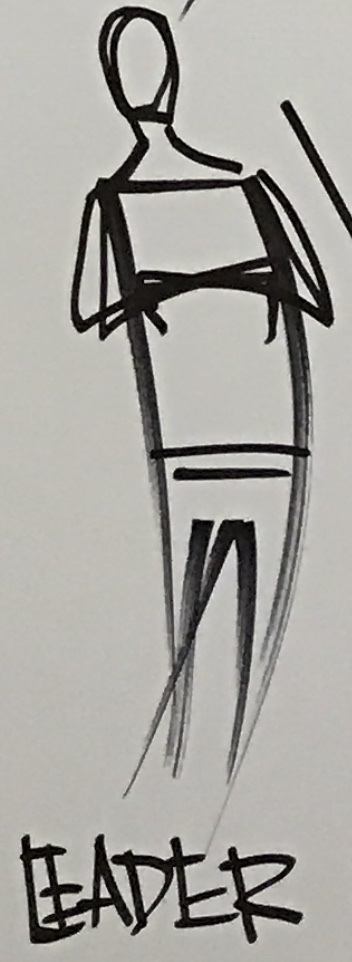 This past Thursday night, we had an incredible 3D Leadership gathering in Mooresville, North Carolina. This was the first gathering of the third cohort of our North and South Carolina leadership development program. This first time together involves an activity called, “Who Am I As A Leader Today?” The participants are all given their very own Mr. or Mrs. Potato Heads and must creatively put them together to represent who they are that day as a leader. We then circle up and everyone shares. This is always so meaningful and is such a great way to begin building a community. You can find out a lot about someone and yourself when you’ve channeled the inner Mr/Mrs Potato Head.
This past Thursday night, we had an incredible 3D Leadership gathering in Mooresville, North Carolina. This was the first gathering of the third cohort of our North and South Carolina leadership development program. This first time together involves an activity called, “Who Am I As A Leader Today?” The participants are all given their very own Mr. or Mrs. Potato Heads and must creatively put them together to represent who they are that day as a leader. We then circle up and everyone shares. This is always so meaningful and is such a great way to begin building a community. You can find out a lot about someone and yourself when you’ve channeled the inner Mr/Mrs Potato Head.
 I am always inspired by the wild representations that participants come up with and the deep and meaningful descriptions they give. Always lots for me to blog about after these. One of the member’s presentations really jumped out at me, however, when she said she considered leaving her Mrs. Potato Head blank without putting anything on it. She shared she wanted it to represent the nakedness she felt as a new leader and her desire to learn and become clothed with knowledge. She even brought in some Bible teaching, reminding us that Jesus had come into the world a naked and humble leader of all – and, we all come into the world naked and without anything. She had gone ahead and decorated he Mrs. Potato Head because, as she told us, she needed to recognize that she does have leadership skills today, but wants to continue learning.
I am always inspired by the wild representations that participants come up with and the deep and meaningful descriptions they give. Always lots for me to blog about after these. One of the member’s presentations really jumped out at me, however, when she said she considered leaving her Mrs. Potato Head blank without putting anything on it. She shared she wanted it to represent the nakedness she felt as a new leader and her desire to learn and become clothed with knowledge. She even brought in some Bible teaching, reminding us that Jesus had come into the world a naked and humble leader of all – and, we all come into the world naked and without anything. She had gone ahead and decorated he Mrs. Potato Head because, as she told us, she needed to recognize that she does have leadership skills today, but wants to continue learning.
The entire group, including me, was blown away by this insightful reflection. Of course, I was so moved that I said I thought there was a book to be written – Naked Leadership. Everyone laughed (thank goodness), but the more I have reflected on it the more I like the title, and the metaphor it represents. For one thing, it’s a catchy title. I’ll bet some of you are reading this post just because the word naked is in the title and you needed to know who was naked. When I began to reflect and study the idea of Naked Leadership, however, I found so many important leadership lessons.
They Realized They Were Naked
In Genesis 2, the Bible says of Adam and Eve, “The eyes of both of them were opened…and they realized they were naked.” As leaders we must have our eyes opened and realize we do not know everything. We need an attitude of personal professional growth and a desire to actively listen to others.
The Emperor Has No Clothes
I love the children’s fairytale The Emperor’s New Clothes. This might have application as a leadership fable for learning more today than at any point in history. You know the story… the emperor was very vain and loved new clothes, so some swindlers took advantage of this. They told the emperor they could fashion the most beautiful cloth ever made that could only be seen by someone who was stupid. So, emperor gave them gold, expensive silk and other items to make the cloth. Of course, these were swindlers who did not make anything but steal the items. Let’s skip to the end of the story…the emperor goes out with his new clothes which were allegedly invisible, and, of course, is naked. No one has the courage to tell the emperor he is naked until he comes to a little boy who says, “But he doesn’t have anything on!” It took the innocence of a child to make the emperor realize he had no clothes.
Wouldn’t we be more effective leaders if we were able to recognize our own nakedness without even needing to be told, as our 3D Leadership participant suggested? This would, I believe, open us up to being advised by others to our nakedness as well. The other part of the story that most never go on to talk about is that once the emperor realizes he really is naked, he continues on, naked, because of his desire to not admit being wrong and his extreme vanity.
I don’t know if the Naked Leadership book will ever get written. I hope it does, but in the meantime we all need to recognize our metaphorical nakedness and be open to finding ways for clothing ourselves with the skills of great leadership. How about you; Do you have any ideas for chapters in the Naked Leadership book?
A World Without Heroes Is No Place For Me
 I continue to find inspiration from Gene Simmons. As a fan of KISS from the beginning I still keep up with Gene and Paul Stanley on Twitter. This morning I was reading a Tweet thread from Gene about the song “A World Without Heroes.” This song was on the 1981 KISS album The Elder. I’d actually forgotten about the song, but went and watched the video. Some on the thread liked the song, others not so much. It’s KISS and Gene Simmons singing, so of course I love the song. I was intrigued by the words and proceeded to think about what they were thinking when they wrote the song. Check it out for yourself:
I continue to find inspiration from Gene Simmons. As a fan of KISS from the beginning I still keep up with Gene and Paul Stanley on Twitter. This morning I was reading a Tweet thread from Gene about the song “A World Without Heroes.” This song was on the 1981 KISS album The Elder. I’d actually forgotten about the song, but went and watched the video. Some on the thread liked the song, others not so much. It’s KISS and Gene Simmons singing, so of course I love the song. I was intrigued by the words and proceeded to think about what they were thinking when they wrote the song. Check it out for yourself:
There are a few parts of the lyrics that stand out to me. Here is my take on this great song:
- “You can’t look up to anyone | Without heroes” ~ Think about those you consider to be heroes. Without them we wouldn’t have anyone to look up to. Our heroes and heroines also understand their core values and walk the walk no matter what. Outstanding leadership often inspires heroic acts. We need heroes as role models. I’m sure glad I’ve had heroes and heroines to look up to and model after.
- “Where you don’t know what your after | Or if something’s after you | And you don’t know why you don’t know” The hero steps in when exceptional circumstances dictate. Heroes show us how to transform our lives. Every hero story tells of a journey toward vast personal transformation.
- “In a world without heroes | There’s nothing to be | It’s no place for me” I just can’t even imagine a world without heroes. Many of my heroes and heroines didn’t run into a burning building, go to war with an angry enemy, or win multiple Super Bowls. But they did do great things – many times just compassionate and caring things. They showed me what I wanted to be and who I wanted to be. As the last lines is the song say, “without heroes there’s nothing to be.”
 Heroes and heroines can be everyday people doing extraordinary things, or just being extraordinary. They don’t always do it for publicity, money, or because the score is being kept. They simply are the human being we aspire to be, and can be. What do you want to be? Are you a hero to anyone? A world without heroes is no place for me!
Heroes and heroines can be everyday people doing extraordinary things, or just being extraordinary. They don’t always do it for publicity, money, or because the score is being kept. They simply are the human being we aspire to be, and can be. What do you want to be? Are you a hero to anyone? A world without heroes is no place for me!
Do You Have An Inexhaustible Ability To Just Live?
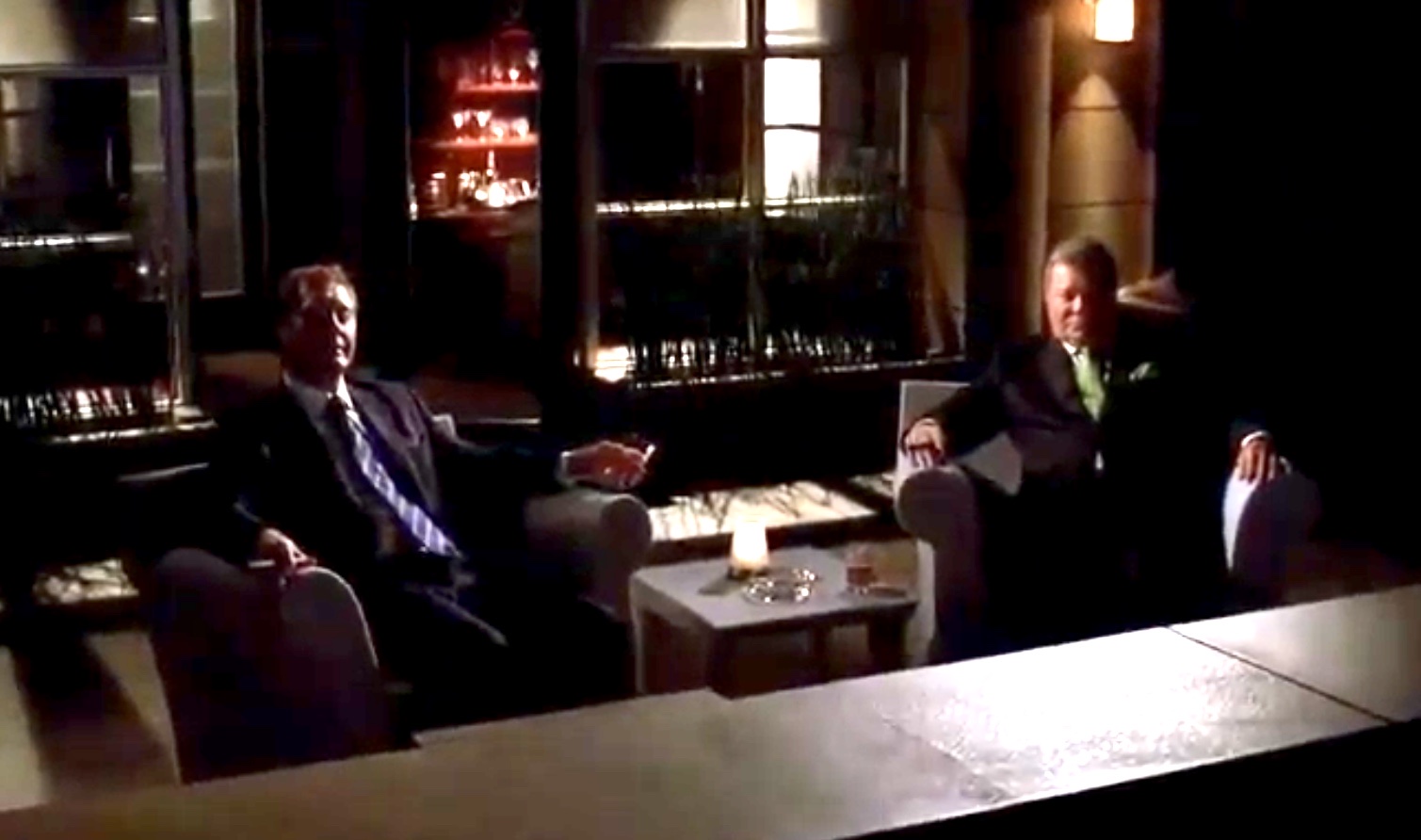 Yesterday I blogged about a scene from an episode of Boston Legal that really caused me to think and reflect. You can read about it in Are We Best Friends. Please allow me to post about another balcony interaction of Denny Crane and Alan Shore at the end of another episode.
Yesterday I blogged about a scene from an episode of Boston Legal that really caused me to think and reflect. You can read about it in Are We Best Friends. Please allow me to post about another balcony interaction of Denny Crane and Alan Shore at the end of another episode.
After asking Alan Shore what he had had for lunch, and telling him he had a steak sandwich with onion rings, Denny Crane said, “Alan, you know, one thing you sometimes forget is, no matter how hard your day, no matter how hard your choices, how complex your ethical decisions, you always get to choose what you have for lunch.” Alan Shore replied, “Daily, I’m amazed at your inexhaustible ability to just live.” Replying, Denny Crane said, “It’s either that or die.” This hit me like a ton of bricks. I believe I have an inexhaustible ability to just live, but just exactly what is that and can we, as leaders, help develop this in others?
Of course this prompted a study for me. What I found was, nothing. So, how do we develop or continue to have an inexhaustible ability to just live? I was actually reminded of a bible verse (John 10:10) where Jesus tells us we are supposed to have an abundant life. Realizing there is a difference here when using the word abundant, I began to think about what really allows us just to live. It turns out that picking what we want for lunch is a perfect example.
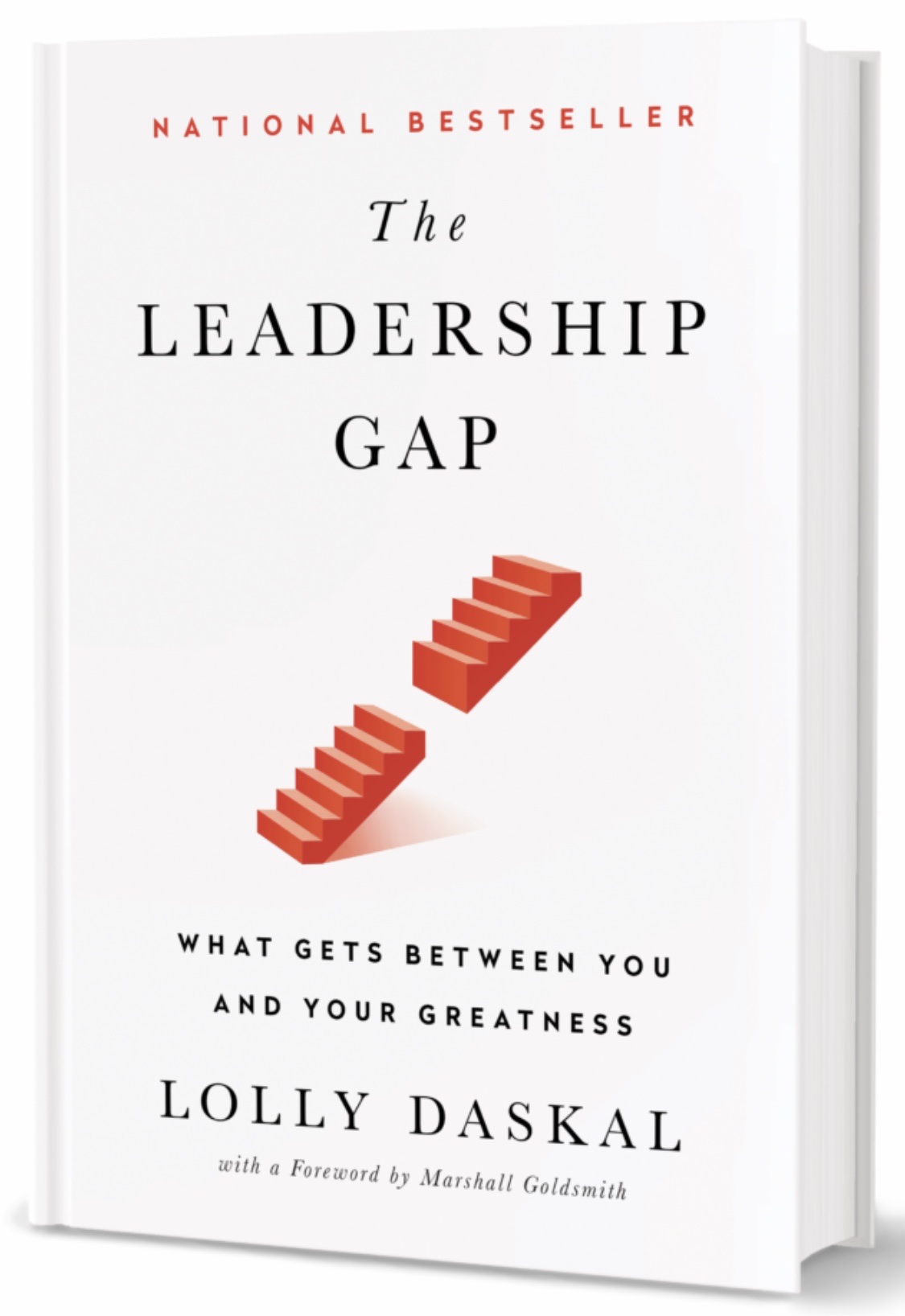 It is about what Lolly Daskal taught in the great book, The Leadership Gap: What Gets Between You And Your Greatness. Daskal posited that focusing on using can, want, and will instead of could, should, and must empowers us to live in terms of our own goals and motivations – just like picking what we want for lunch. Think about it: when asked about lunch, we say, “I want…”
It is about what Lolly Daskal taught in the great book, The Leadership Gap: What Gets Between You And Your Greatness. Daskal posited that focusing on using can, want, and will instead of could, should, and must empowers us to live in terms of our own goals and motivations – just like picking what we want for lunch. Think about it: when asked about lunch, we say, “I want…”
Typically, when we choose what we want for lunch it is very authentic. We, or at least I can speak for myself, have no problem having the courage to proclaim what we want for lunch. Why not live and lead on our own terms in other areas of our life as well? Daskal also taught us to have a kinder dialogue with ourselves and focus on leading from within. Could it be as easy as working toward can, want, and will? I think so!
Finally, I believe an inexhaustible ability to just live means to go after what you want without worrying about what others will think. It means continually reaching out for newer, richer, deeper, life changing experiences. So let’s go push the boundaries of ourselves mentally, spiritually, and intellectually for personal growth and the betterment of the world at large. Also, step back and just enjoy the ride that is the journey of our life.
Do you have an inexhaustible ability to just live?
Stand Your Ground & Be The Example
 Setting an example through your own practice illustrates to others that change is a shared endeavor. True leaders are the pinnacle of what they expect from the people around them. And by setting an example, true leaders encourage their people to aim for that. By walking your talk, you become a person others want to follow. When leaders say one thing, but do another, they erode trust–a critical element of productive leadership.
Setting an example through your own practice illustrates to others that change is a shared endeavor. True leaders are the pinnacle of what they expect from the people around them. And by setting an example, true leaders encourage their people to aim for that. By walking your talk, you become a person others want to follow. When leaders say one thing, but do another, they erode trust–a critical element of productive leadership.
Great leaders are persistent. Try, try again. Go over, under or around any hurdles to show that obstacles, what I like to call opportunities, don’t define your company or team. This will allow you to create solutions. Don’t dwell on problems; instead be the first to offer solutions and then ask your team for more.
Furthermore, being the first to change can be challenging. As a pioneer, you have to overcome resistance to the status quo. We humans get used to the way things are. Yet those who dare to rock the boat are in a position of tremendous power, and can send ripples of inspiration out to the world. Lead by example because others will become curious. Remember, our actions are much more persuasive than than our words.
If You Cannot Lose, You Cannot Win
 I always have a long list of topics that I want to blog about. With this post I get to one that hit the list on Christmas Day, 2018. My father-in-law had a page of quotes from a magazine and he did a little devotional reading before we sang Happy Birthday to Jesus (a family tradition on my wife’s side). He handed me the copy when he was done and I got to reading the other quotes. One quote really jumped out at me. Better yet, it hit me like a ton of bricks. It is one of those that I needed to read two or three times to really comprehend what it was saying. Here it is:
I always have a long list of topics that I want to blog about. With this post I get to one that hit the list on Christmas Day, 2018. My father-in-law had a page of quotes from a magazine and he did a little devotional reading before we sang Happy Birthday to Jesus (a family tradition on my wife’s side). He handed me the copy when he was done and I got to reading the other quotes. One quote really jumped out at me. Better yet, it hit me like a ton of bricks. It is one of those that I needed to read two or three times to really comprehend what it was saying. Here it is:
“If you want to do something where we can’t lose, then we must accept the proposition that we cannot win.” ~ Gene Hill, A Hunter’s Fireside Book, 1972
Read it one more time. This quote really caused me to take pause. It is very true. I we want to do things that we cannot lose at, then we have to accept that we will never win. At the time I was reading this I was really thinking about lots of things in a winning and losing context. Whether it be in the public policy arena, football bowl games, or many other things. It is very frustrating to me that many times people do not want to get behind, support, or associate themselves with new and innovative things until they know they are going to be successful (a win). That to me is playing not to lose, not playing to win. In athletics, one of the worst things you can do is play not to lose. Very rarely will that strategy get the person or team the win. I believe this is true in all other areas as well.
Not being able to take a loss or having fear of losing will keep us from ever making progress. Trying not to lose is not the same thing as trying to win. Trying not to lose is reactionary. It’s prevention. Most of the time it prevents us from winning. Worst of all, it starts with the belief that we should focus on “not losing,” which gives the idea of losing too much power. “Playing to win” begins with the belief that we can and will win. It’s empowering. The belief that we can win and the desire to do so allows us to take initiative, be creative and innovative, to be resourceful, and to take the necessary actions that will better the chances of winning—even if taking those actions comes with a particular risk. We cannot live risk free and have guarantees that everything we do will be a winner.
We’ve all seen athletes, athletic teams, businesses, and political leaders try to play it safe and approach games, life, and administrations from a safe and play not to lose vantage point. What usually happens? At best, nothing! At worst, the loss. If you’re like me you have probably been in the situation where you were really working hard for a win with very little support of others who were afraid you might lose. Then all of the sudden when the win came, lo and behold, everyone was there to take credit. Amazing!
When we are playing not to lose our focus is not on what we could gain, but on protecting what we already have. When playing not to lose energies are channeled into shoring up the status quo, and guarding against what we do not want to happen. So play to win, not to not lose. In the larger game of leadership, playing it safe is the most dangerous game plan of all. Playing to win might just be the greatest of all leadership traits. It requires putting what you already have at risk for the sake of something bigger, something better. Additionally, it requires throwing caution to the wind and having the courage to creative something new and be innovative. This takes a great deal of courage and a trait that I am so glad I have been blessed with: “being comfortable with being uncomfortable.”
So, lets get out there and play to win. Remember, without failure there can be no real progress. I leave you with the great wisdom of Theodore Roosevelt:
“It is not the critic who counts; not the man who points out how the strong man stumbles, or where the doer of deeds could have done them better. The credit belongs to the man who is actually in the arena, whose face is marred by dust and sweat and blood; who strives valiantly; who errs, who comes short again and again, because there is no effort without error and shortcoming; but who does actually strive to do the deeds; who knows great enthusiasms, the great devotions; who spends himself in a worthy cause; who at the best knows in the end the triumph of high achievement, and who at the worst, if he fails, at least fails while daring greatly, so that his place shall never be with those cold and timid souls who neither know victory nor defeat.” ~ Theodore Roosevelt
Hailey’s Energy Bus
 Several years ago I read the great book, The Energy Bus, by Jon Gordon. It is an outstanding book written as a fable. The book is written from the perspective of a middle manager (George) who is leading a team heading nowhere. Through a series of events he ends up riding a city bus with a positive motivation guru at the helm and a group of “energy” converts in the seats. After riding the bus for two weeks he has learned 10 lessons.
Several years ago I read the great book, The Energy Bus, by Jon Gordon. It is an outstanding book written as a fable. The book is written from the perspective of a middle manager (George) who is leading a team heading nowhere. Through a series of events he ends up riding a city bus with a positive motivation guru at the helm and a group of “energy” converts in the seats. After riding the bus for two weeks he has learned 10 lessons.
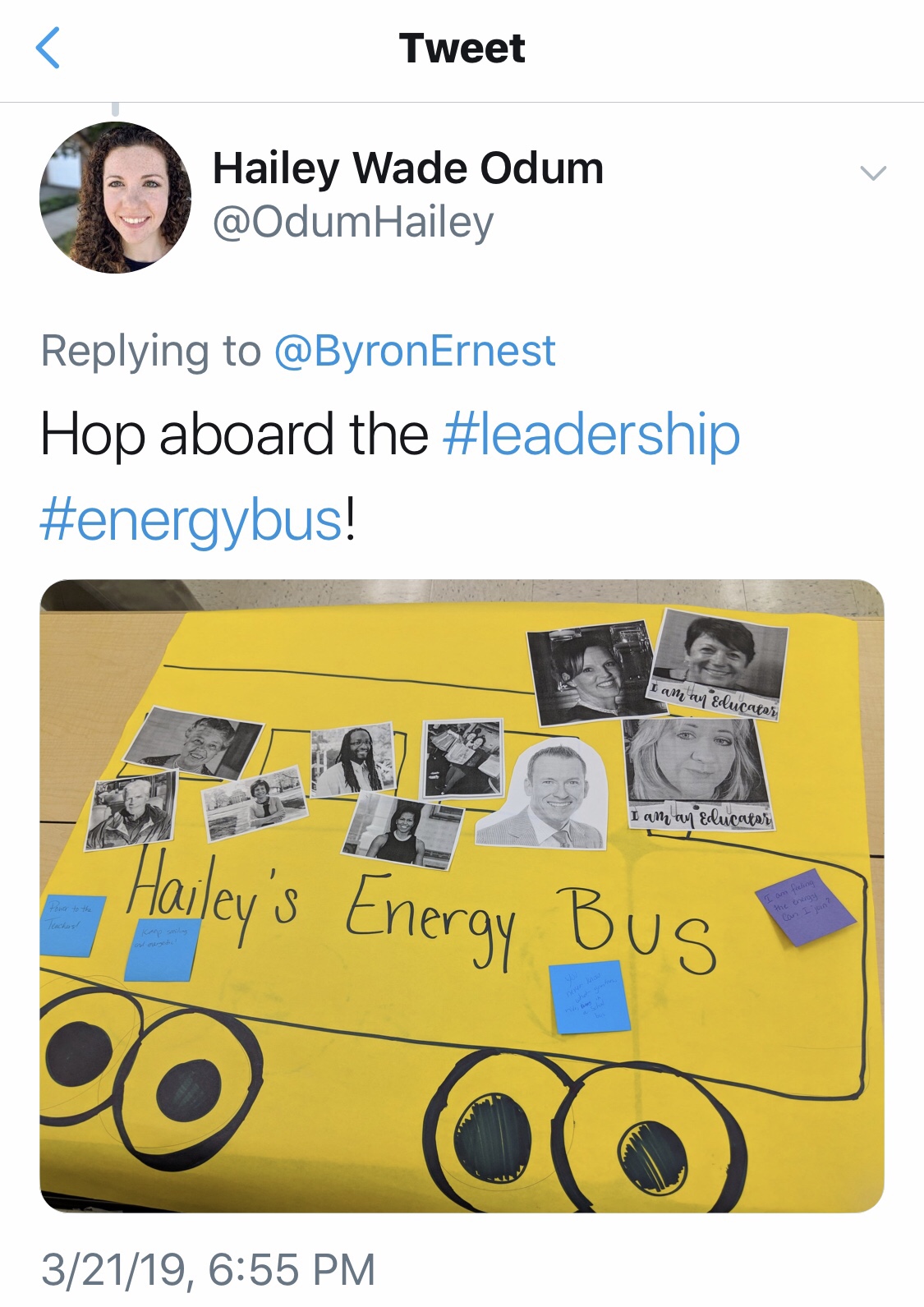 I was reminded of this book this past Thursday night while working with our Carolinas 3D Leadership participants in Kannapolis, North Carolina. The participants were working on a creative activity of putting 10 of the top influencers of leadership in their lives into a collage. Low and behold as I’m circulating I find Hailey’s Energy Bus. It immediately took me back to The Energy Bus book. Hailey Wade Odum realized that these leaders who influenced her, gave her energy. The energy to be a great teacher leader and K-5 STEM Lab instructor at Cabarrus Charter Academy Elementary School. She even tweeted, “Hop aboard the #Leadership #EnergyBus.” Jon Gordon would have been proud!
I was reminded of this book this past Thursday night while working with our Carolinas 3D Leadership participants in Kannapolis, North Carolina. The participants were working on a creative activity of putting 10 of the top influencers of leadership in their lives into a collage. Low and behold as I’m circulating I find Hailey’s Energy Bus. It immediately took me back to The Energy Bus book. Hailey Wade Odum realized that these leaders who influenced her, gave her energy. The energy to be a great teacher leader and K-5 STEM Lab instructor at Cabarrus Charter Academy Elementary School. She even tweeted, “Hop aboard the #Leadership #EnergyBus.” Jon Gordon would have been proud!
This really made me think about the ten lessons in The Energy Bus. They all applied to Hailey’s picks of her top ten influencers. Here’s the ten lessons (rules):
- You’re the driver of your bus.
- Desire, vision, and focus move your bus in the right direction.
- Fuel your ride with positive energy.
- Invite people on your bus and share your vision for the road ahead.
- Don’t waste your energy on those who don’t get on your bus.
- Post a sign that says, “No Energy Vampires Allowed” on your bus.
- Enthusiasm attracts more passengers and energizes them during the ride.
- Love your passengers.
- Drive with purpose.
- Have fun and enjoy the ride.
 All of these rules I’m sure went into Hailey’s picks of her influencers, but in listening to her report out I believe that rules 2, 3, and 9 were pretty important in the decision. It’s all about personal responsibility. We are each responsible for the direction of our lives. And the direction of our lives is shaped by each day, each thought, and each person we use as a mentor or exemplar. If we are complacent in our lives we let others drive for us. We need to be driving our own energy bus. Have you ever felt out of control? Well, it’s time to take charge and drive your own bus. In my experience, the realization that my efforts now can reap big rewards in the future has always been very empowering.
All of these rules I’m sure went into Hailey’s picks of her influencers, but in listening to her report out I believe that rules 2, 3, and 9 were pretty important in the decision. It’s all about personal responsibility. We are each responsible for the direction of our lives. And the direction of our lives is shaped by each day, each thought, and each person we use as a mentor or exemplar. If we are complacent in our lives we let others drive for us. We need to be driving our own energy bus. Have you ever felt out of control? Well, it’s time to take charge and drive your own bus. In my experience, the realization that my efforts now can reap big rewards in the future has always been very empowering.
 The other thing we spent time visiting about is that people are constantly being added to our bus. As our lives evolve and we continue to iterate and reinvent ourselves, some of our influencers will change. Unlike like the real Mount Rushmore that is literally carved in stone, our personal Mount Rushmorean leaders should be molded such to be constantly evolving. Who’s on your ENERGY BUS?
The other thing we spent time visiting about is that people are constantly being added to our bus. As our lives evolve and we continue to iterate and reinvent ourselves, some of our influencers will change. Unlike like the real Mount Rushmore that is literally carved in stone, our personal Mount Rushmorean leaders should be molded such to be constantly evolving. Who’s on your ENERGY BUS?
Leading Like Mr. Incredible
 At our most recent 3D Leadership gathering in Florida we had the participants make name tags because our group size was around 80 individuals. But you know me, I couldn’t just have them make a normal boring name tag with a name, they also had to put the name of the superhero that they would most want to be. Then during some presenting out they had to tell us why. Great activity and way to get to know others! I was blown away, however, by one person, Bradley Warren, Assistant Principal at Waterset Charter School, who put Mr. Incredible AKA Byron on his. I was honored and asked the person why and he said, “You remind me of Mr. Incredible.” I’m pretty sure he was kidding, but… So, I had to do some studying on, you guessed it, Mr. Incredible.
At our most recent 3D Leadership gathering in Florida we had the participants make name tags because our group size was around 80 individuals. But you know me, I couldn’t just have them make a normal boring name tag with a name, they also had to put the name of the superhero that they would most want to be. Then during some presenting out they had to tell us why. Great activity and way to get to know others! I was blown away, however, by one person, Bradley Warren, Assistant Principal at Waterset Charter School, who put Mr. Incredible AKA Byron on his. I was honored and asked the person why and he said, “You remind me of Mr. Incredible.” I’m pretty sure he was kidding, but… So, I had to do some studying on, you guessed it, Mr. Incredible.
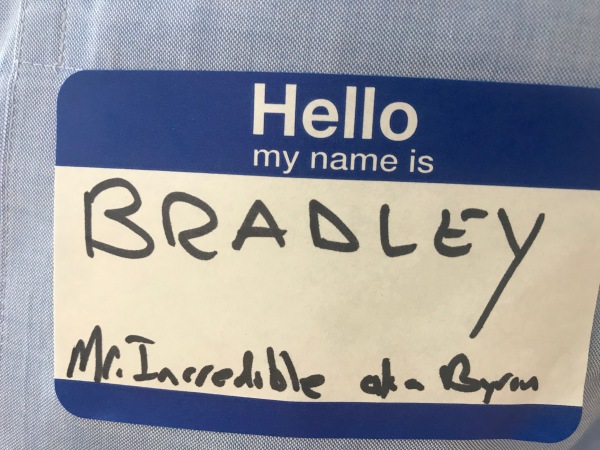 Basically my research revealed that Mr. Incredible started out like any other superhero by saving the world several times. Then I found that he and other superheroes were forced to suppress their superness (yes, I made up that word). During this time it was tough for Mr. Incredible because he was looking for ways to be great and help others. Also, during this time he got married and started a family. Sounds like a lot of us, right? This reminded me that God intended us all to be leaders, fight for what is right, to win, and to defend. I try to live up to this call every day.
Basically my research revealed that Mr. Incredible started out like any other superhero by saving the world several times. Then I found that he and other superheroes were forced to suppress their superness (yes, I made up that word). During this time it was tough for Mr. Incredible because he was looking for ways to be great and help others. Also, during this time he got married and started a family. Sounds like a lot of us, right? This reminded me that God intended us all to be leaders, fight for what is right, to win, and to defend. I try to live up to this call every day.
The big thing that stands out about Mr. Incredible to me is the fact that for him to realize it was not all about him was that he had to end up with a real family with the real day to day challenges and tribulations we all face. In thinking about it, all of the superheroes are real people with real challenges who lead real lives. It’s easy to be Mr. Incredible, or any other superhero for that matter, when you have super powers. It’s much harder to be a dad and husband, like the real Mr. Incredible, Robert Parr, who works each day and raises kids to adulthood has to do.
“No matter how many times you save the world. It manages to get back in jeopardy again.” ~ Mr. Incredible
We all need a challenge and we all need to do our part to save the world. Whether that is in the world of education, like in my case, or wherever your passion and purpose takes you. We must all choose to lead. We need to all realize we are valuable whether we can leap tall buildings (which we can’t) or not. We can, however, make a huge difference just being who we are.
What great leadership lessons I learned from a simple name tag. Thanks Bradley, for making me evaluate and reflect on whether I am living up to the Mr. Incredible standards. Do you have any Mr. Incredible insights to add?
Dream Of Things That Never Were…
 Not too long ago, I was in a meeting and one of the participants said, “we need to think in terms of aspirational goals, not what is already being done.” The individual went on to say, “you know, the way Byron is always coming up with wild ideas that nobody thinks could ever happen.” This really got me thinking about the value of aspirational thinking, planning, and goal making. I am guilty as charged for thinking this way. I guess my mind works in the way Robert Kennedy described it when paraphrasing George Bernard Shaw’s play Back To Methuselah (1921):
Not too long ago, I was in a meeting and one of the participants said, “we need to think in terms of aspirational goals, not what is already being done.” The individual went on to say, “you know, the way Byron is always coming up with wild ideas that nobody thinks could ever happen.” This really got me thinking about the value of aspirational thinking, planning, and goal making. I am guilty as charged for thinking this way. I guess my mind works in the way Robert Kennedy described it when paraphrasing George Bernard Shaw’s play Back To Methuselah (1921):
“Some men see things as they are, and ask why. I dream of things that never were, and ask why not.” ~ Robert Kennedy
Dreaming is aspirational, and fundamentally changes the way we think. This aspirational thinking liberates leaders to achieve the unachievable. Instead of being locked into what is theoretically achievable, we need to be asking the question “why can’t we do this?” We need to find ways to become unburdened by “the way things are done around here?” I love to ask the question “why is this still being done this way?” Almost three years ago I started asking the question “why are we one of only 14 states that still uses/has a graduation qualifying exam (GQE)?” Now, Indiana has Graduation Pathways with multiple ways to graduate based on the student desires, goals, and needs. We no longer have a GQE, or single path to graduation. Don’t think we didn’t here “This is the way it’s been done.” Or, “We’ll never get this changed.” But, guess what? We did, and it was the right thing to do for Indiana students. It started with an aspirational dream (and getting laughed out of a few meetings).
 One advantage I have when it comes to aspirational dreaming is that I am comfortable being uncomfortable. Individuals, organizations, and groups need to remember it is important to set a goal or go after a dream without necessarily providing or having full certainty about exactly how it will be achieved. Clarity is achieved, however, from understanding why the aspirational goal is necessary.
One advantage I have when it comes to aspirational dreaming is that I am comfortable being uncomfortable. Individuals, organizations, and groups need to remember it is important to set a goal or go after a dream without necessarily providing or having full certainty about exactly how it will be achieved. Clarity is achieved, however, from understanding why the aspirational goal is necessary.
Aspirational dreaming allows us to operate in an environment where “we are open to doing things differently.” There is something almost magical about having goals that are aspirational in nature. An aspirational goal defies logic in many ways in that you can’t see a specific path to achieving the goal when you set it. You just know that it is something that is very important and you want to find a way to bring it into your life or the lives of others over time.
Go ahead, dream a little and pull the levers that have never been pulled before, and ask “why not?”
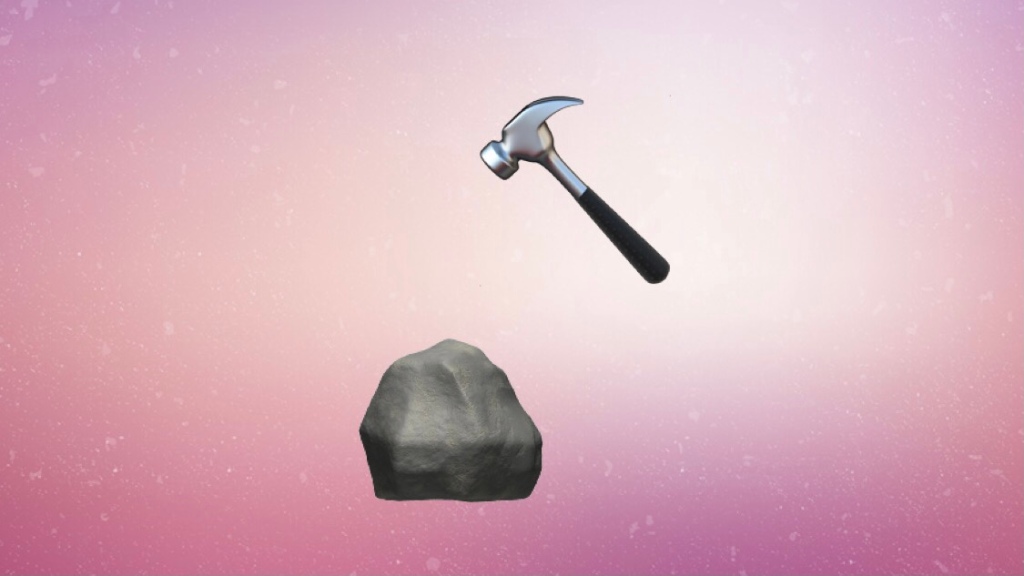

leave a comment